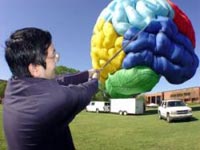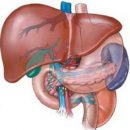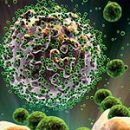The loss of memory is scientifically called amnesia. What do we know about it? Is it possible to lose memory? Whether the memory is completely lost? Because of what we lose memory?
Content
Amnesia - General or partial inability to remember recent or remote events.
Causes of memory loss
 The reasons for amnesia are understandable only in part. Brain damage can cause a loss of memory of the events that occurred immediately before injury (retrograde amnesia) or immediately after it (post-traumatic, or anterograd, amnesia). Amnesia in most cases continue a few minutes or hours depending on the severity of injury and disappear without treatment, but with severe damage to the brain, amnesia may be irreversible.
The reasons for amnesia are understandable only in part. Brain damage can cause a loss of memory of the events that occurred immediately before injury (retrograde amnesia) or immediately after it (post-traumatic, or anterograd, amnesia). Amnesia in most cases continue a few minutes or hours depending on the severity of injury and disappear without treatment, but with severe damage to the brain, amnesia may be irreversible.
Learning requires normal memory. Memories obtained in childhood are stronger than those acquired in adulthood. It may be explained by the fact that the brain of a young man has great learning abilities. Zones allowing the brain to receive information and extract it from memory, are located mainly in the occipital, dark and temporal fractions.
Emotions arising due to the activities of a special brain system - limbic, can affect the memorization, and to extract this information. The limbic system is closely related to the regions responsible for the level of consciousness. Since memory requires the participation of many interconnected brain functions, then actually any kind of brain damage can lead to memory loss.
Full amnesia attacks
Transient global amnesia is a sudden, heavy, not remaining in mind the attack of confidence with loss of orientation in time and space, as well as the ability to learn others. Many people have never been repeating the attacks of transient global amnesia during life, but some may have.
Attacks can last from 30 minutes to 12 hours. The reason may cause the periodic blockage of small arteries of the brain as a result of atherosclerosis. In young people, the transient global amnesia is able to cause migration attacks in which the blood flow in the brain is temporarily reduced.
Alcohol abuse or receiving excessive number of tranquilizers, such as barbiturates and benzodiazepines, may also cause short seizures. Amnesia often leads to a complete disorientation and loss of memory of the events that happened in the past few years. After an attack, the confusion of consciousness usually goes quickly and comes full recovery.
Amnesia with alcoholism
Alcoholics and other people with unbalanced nutrition meet an unusual form of amnesia, called Vernik-Korsakov syndrome. This syndrome is to combine two violations: acute confusion of consciousness (acute encephalopathy Wernik) and long amnesia.
Both states are a consequence of a brain defusion caused by the deficiency of thiamine (vitamin B1). Excessive use of alcohol with a lack of thiamine food reduces the content of this vitamin in the brain. The use of a large number of other liquids or the introduction of a large volume of fluid intravenously after surgery can cause encephalopathy to the Wernika with a lack of weight.
Amnesia on Wernik
Under acute encephalopathy, the Vernika marks the instability of the gait, impairment of vision (for example, paralysis of the eye muscles, bias in the eyes or nystagm - the trembling of the eyeball), confusion of consciousness and drowsiness.
Loss of memory heavy. The introduction of thiamine intravenously usually leads to the restoration of broken brain functions. Without treatment, the sharp encephalopathy Wernik can lead to death. Therefore, if the patient with alcoholism is noted unusual neurological symptoms or confusion, treatment with thiamine begin immediately.
Amnesia Corsakov
Amnesia Corsakov (Corsakovsky amnistic psychosis) accompanies the acute encephalopathy of the Wernik and can become irreversible if after severe or repeated episodes of encephalopathy or abstineent syndrome (sharp cessation of alcohol consumption after a long drink). Severe memory loss is often accompanied by excitation and delirium.
With chronic amnesia Corsakov, short-term memory is maintained, but the memory of recent and relatively remote events is lost, although the memory of very long-time events has been preserved. With Chronic Amnesia Corsakov, people can communicate and maintain a consistent conversation, but they are not able to recall the events that have happened in the previous few days, months, years or even in previous minutes. Aware of the existing memory violation, they tend to mask it.
Despite the fact that in most cases Amnesia Corsakov is associated with thiamine deficiency, it also occurs after severe head injury, heart stop or acute encephalitis. In people suffering from alcoholism, Tiamine's reception is cured by the encephalopathy of the Wernik, but does not always lead to the elimination of Amnesia Korsakov. Sometimes these states gradually disappear without special measures, if a person is treated from diseases that provoke them, and does not drink alcohol.









